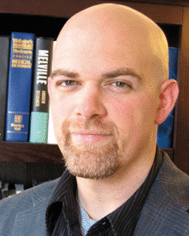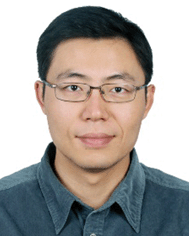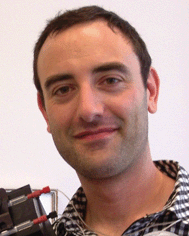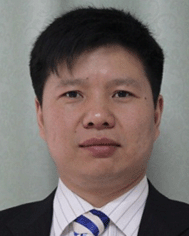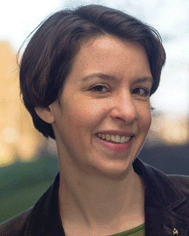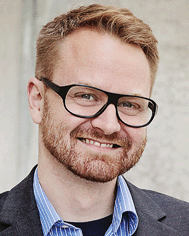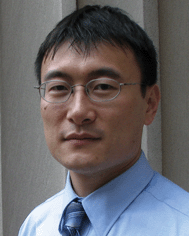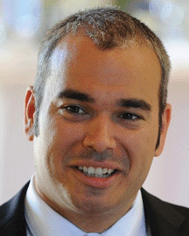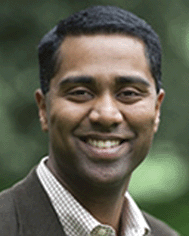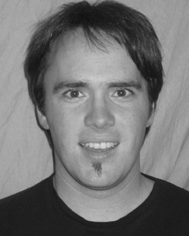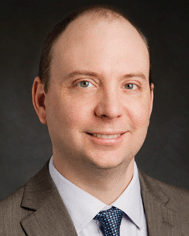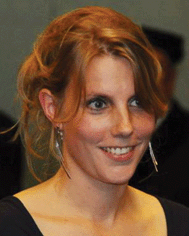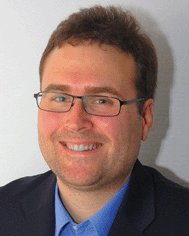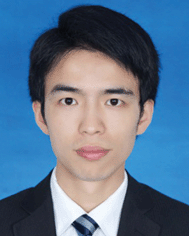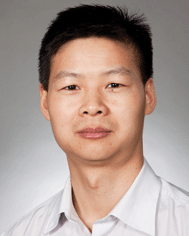Contributors to Emerging Investigators 2014
Adam Abate
Adam Abate is an Assistant Professor at the University of California, San Francisco in the Department of Bioengineering and Therapeutic Sciences (BTS) in the Schools of Medicine and Pharmacy. He is part of QB3, the joint Berkeley-UCSF bioengineering graduate program, PSPG, and iPQB. He graduated from Harvard College in 2002 with an A. B. in Physics and the University of Pennsylvania in 2006 with a PhD in Physics and is the recipient of an NSF CAREER Award. He founded GnuBIO Inc., which was recently acquired by Bio-Rad, and Mission Bio Inc., a new startup commercializing PCR-Activated Cell Sorting (PACS) developed by his lab. His research focuses on ultrahigh-throughput single cell analysis for single cell sequencing and synthetic biology applications.Yanan Du
Yanan Du received his B.Eng. degree in Chemical Engineering from Tsinghua University (2002) and PhD in Bioengineering from National University of Singapore (2007). From 2007–2010, Dr Du completed his postdoctoral training at the Harvard-MIT Division of Health Science and Technology, MIT and Brigham and Women's Hospital, Harvard Medical School. In 2010, he joined the faculty at the Department of Biomedical Engineering, School of Medicine, Tsinghua University. Dr Du's research focuses on developing micro-engineered cell-based assays and therapy platforms for drug screening, disease studies and regenerative therapy.Jesse Greener
Jesse Greener is a new faculty member at Université Laval in Québec City, Canada. His current work exploits microfluidics, spectroscopy, electrochemistry and quantitative microscopy to study biofilms as functional materials. He was formerly trained in Chemical Physics as a Bachelors student at the University of Waterloo, and then went on to do a PhD in Physics at the University of Western Ontario where he developed time-resolved vibrational spectroscopy for studying fundamental surface chemistry systems. In 2012 he finished a post-doctoral fellowship with the Kumacheva group at the University of Toronto, where he focused on the development of microfluidic systems, integration of in situ characterization via spectroscopy and various probe technologies. He used his new technology for the production of micro-emulsions, kinetic studies of fast and complex chemical reactions, and even as the basis for a new teaching platform. He is also the co-founder and owner of the microfluidics foundry FlowJEM Inc. (http://www.flowjem.com), which fabricates microfluidic devices with custom geometries in a variety of thermoplastic materials.Wei-Hua Huang
Dr Wei-Hua Huang received his B.S. (1996) and PhD (2002) from Wuhan University, China, and then he became a faculty member of Wuhan University. After serving as a postdoctoral fellow at the École Normale Supérieure, France, he started his independent position at the end of 2007 as a Professor at Wuhan University. His primary research interests focus on the development of micro or nanoscale analytical techniques and exploring their use in cell analysis.Sarah Köster
Sarah Köster received a diploma in Physics from Ulm University (2003) and a PhD in Physics from Göttingen University (2006). After a postdoc at Harvard University (2006–2008), she returned to Göttingen University first as an Assistant Professor and in the meantime (since 2011) as a tenured Associate Professor. Her research is focused on cellular mechanics, in particular investigating cytoskeletal proteins. She uses various microfluidic tools in combination with different observation techniques, ranging from optical microscopy to X-ray scattering and imaging.Alexander Kuehne
Alexander graduated from the University of Strathclyde, Scotland focusing on novel optical photoresist- and semiconducting materials. During postdoc stays at the University of Cologne, Germany and Harvard, USA, he entered the fields of microfluidics and optical colloids. Presently, he is leading a research group at DWI – Leibniz Institute for Interactive Materials in Aachen, Germany, where he is coordinating the Synthiofluidics research programme. His research interests cover the development of novel functional colloids, fibres and microfluidic architectures.Hongshen Ma
Hongshen Ma is an Assistant Professor in the Department of Mechanical Engineering at the University of British Columbia and a Research Scientist at the Vancouver Prostate Centre. He received his bachelor's degree in Engineering Physics at the University of British Columbia, and his master's and PhD degrees from the Massachusetts Institute of Technology. His current research program focuses on the development of microfluidic technologies for cell biomechanics and cell separation with applications in circulating tumor cells, malaria, and blood storage.Sebastian Maerkl
Sebastian Maerkl obtained two B.S. degrees from Fairleigh-Dickinson University in Biology and Chemistry in 2001 and a PhD from the California Institute of Technology in 2008. During his graduate work he helped develop microfluidic large-scale integration and applied the technology to systems biology. For his graduate work, Sebastian Maerkl was awarded the Demetriades–Tsafka–Kokalis prize for the best Caltech PhD thesis in the field of biotechnology. Since 2008, Sebastian Maerkl has been an Assistant Professor in the Institute of Bioengineering at the École Polytechnique Fédérale de Lausanne (EPFL) in Switzerland. His current research interests lie in the fields of systems biology, synthetic biology, and diagnostics.Shashi Murthy
Shashi Murthy is an Associate Professor of Chemical Engineering and the Founding Director of the Michael J. and Ann Sherman Center for Engineering Entrepreneurship Education at Northeastern University. He earned his PhD in Materials Science and Engineering at MIT (2003) and his B.S. in Chemical Engineering at Johns Hopkins University (1999), and joined Northeastern faculty in 2005 following a postdoctoral fellowship at the Harvard Medical School and Massachusetts General Hospital. Professor Murthy is the recipient of the National Science Foundation's Faculty Early Career Development (CAREER) Award and the Søren Buus Award for Outstanding Research in Engineering at Northeastern University. He has co-authored over 50 publications in the areas of microfluidic cell separation and biomaterials, is an inventor on five issued or pending patents, and a founder of Qμad Technologies Corp., a startup focused on commercializing cell capture/release hydrogels designed in his laboratory.Bastian Rapp
Bastian E. Rapp studied Mechanical Engineering at the University of Karlsruhe and finished his PhD at the same university in 2008 working on biosensors for biomedical diagnostics. He is now head of a Young Investigator Group at the Institute of Microstructure Technology (IMT) of the Karlsruhe Institute of Technology (KIT). His research focuses on the development of microfluidic analytical systems and instrumentation for biomedical applications and biotechnology as well as polymer and biomaterial synthesis. For his work he was awarded, among others, the Edison Award of the General Electric (GE) Foundation, the REHAU award and the Südwestmetallförderpreis award.Charles Schroeder
Charles Schroeder is an Assistant Professor of Chemical & Biomolecular Engineering at the University of Illinois at Urbana-Champaign. He is a member of the Center for Biophysics and Quantitative Biology, with affiliate status in the Department of Materials Science and Engineering and the Department of Chemistry. He is also a member of the Biosystems Design theme in the Institute for Genomic Biology. Professor Schroeder received his B.S. (1999) in Chemical Engineering from Carnegie Mellon University, followed by an M.S. (2001) and PhD (2004) in Chemical Engineering at Stanford University under the supervision of Professors Eric Shaqfeh and Steven Chu. Before joining the University of Illinois in 2008, he was a postdoctoral researcher at Harvard University and the University of California-Berkeley. Professor Schroeder's work has been recognized by several awards, including the Camille Dreyfus Teacher-Scholar Award in 2013, an NSF CAREER Award in 2013, the Dean's Award for Excellence in Research in 2013, the Arthur B. Metzner Award from the Society of Rheology in 2012, a Packard Fellowship in Science and Engineering in 2011, and the NIH Pathway to Independence Award (K99/R00). Professor Schroeder is currently a Beckman Fellow in the Center for Advanced Study at the University of Illinois.Loes Segerink
After obtaining her MSc degree in Biomedical Engineering cum laude at the University of Twente in 2007, Loes started as a PhD student at the same university in the research group of Prof. Dr Ir. Albert van den Berg. During her PhD she developed a microfluidic chip (known as the fertility chip) that can be used to assess the fertility of a man by determining the concentration and motility of spermatozoa in semen. For this the technique microfluidic impedance cytometry was used, thereby detecting each individual spermatozoon in a label-free way. Besides enormous media attention, she obtained the Simon Stevin Leerling prize (2011) and the Simon Stevin Gezel award (2012) for this successful research.Since November 2011, Loes has been working as a postdoctoral researcher. Her research focuses on the valorisation of the fertility chip and the research for other (bio)medical diagnostic devices. From March 2013 until May 2013 she worked as a postdoctoral researcher at the group of Prof. Dr Helene Andersson Svahn (Division of Nanobiotechnology, KTH Stockholm, Sweden), and conducted research on the use of paper microarrays for rapid biomarker detection in serum. After returning to the Netherlands, she received the Veni grant to develop new techniques to assess and select spermatozoa for assisted reproductive technologies such as in vitro fertilization and intracytoplasmic sperm injection. Besides that, she is a co-founder of a spinoff company, for which she received the STW Valorisation Grant 2.
Julian Thiele
Julian Thiele is a research fellow at Radboud University Nijmegen. He received his BSc in Organic Chemistry from Lund University (2008) and his diploma in Physical and Polymer Chemistry from Hamburg University (2008). Funded by grants of the German Academic Exchange Service (DAAD) and Fund of the Chemical Industry (FCI), he worked at Harvard University (2009, 2010) and obtained his PhD from Bayreuth University (2011) for which he was awarded the Culture Award Bavaria. Being a Feodor Lynen Fellow of the Humboldt Foundation, his research interests include microfluidically prepared artificial cells and reaction–diffusion in functional hydrogels as well as metabolic engineering.Wei Wang
Dr Wei Wang obtained his B.S. degree in Bioengineering in 2007 and PhD degree in Biochemical Engineering in 2012 from Sichuan University, China. His PhD thesis focused on microfluidic fabrication of emulsions and functional materials with novel structures. Since July 2012, he has been an assistant Professor at the School of Chemical Engineering in Sichuan University, and was selected as the “Young Elite Talent” of Sichuan University. His current research interests focus on microfluidic techniques, interfacial science and functional materials.Wenhui Wang
Wenhui Wang is an Associate Professor in the Department of Precision Instruments at Tsinghua University, China. He received his B.E. in Mechanical and Electronic Engineering (1998) and M.E. in Systems Engineering (2001) from the Beijing Institute of Technology, China. After one year of working in Lenovo, he returned to school and earned his PhD in Mechanical Engineering from the National University of Singapore (2005). He then received 2 years of postdoctoral training at the University of Toronto, prior to becoming a faculty member in the Department of Mechanical Engineering at the University of Canterbury, New Zealand, in 2007. In late 2012 he relocated to Tsinghua University under the Chinese Government Young 1000-Talent Plan program. His current research interests include BioMEMS and microfluidic devices and systems, aiming for bio-micro-manipulation and analysis of single cells and whole animals like C. elegans.| This journal is © The Royal Society of Chemistry 2014 |

